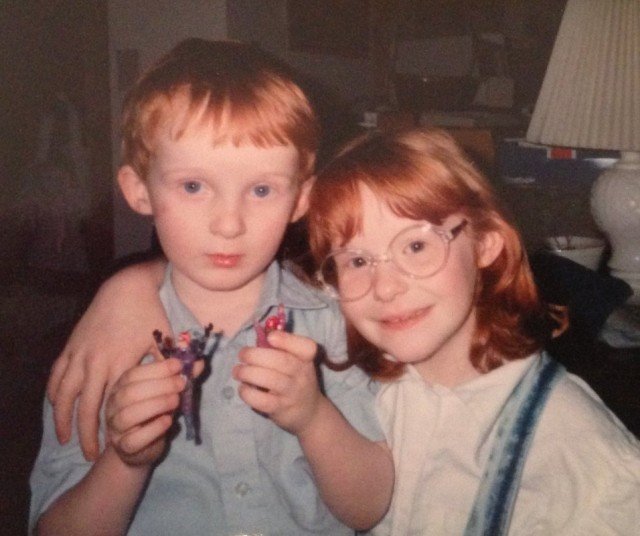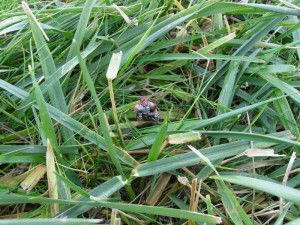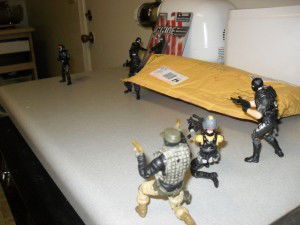When I was a child, I could be frequently found outdoors playing in the dirt with green plastic army men. Growing up on a farm in rural Indiana, there was never a shortage of adventures for my active imagination to embark on. Activities as simple as climbing trees, racing through the cornfield, and chasing chickens became much grander. I escaped rampaging dinosaurs, explored forgotten ruins, and battled against ferocious enemies. Forever tucked away in my pockets were “little guys”, as my mother would often call them. These battle-worn G.I. Joes were companions in sweeping campaigns of good against evil. Many were battered hand-me-downs from my brothers, yet in my imagination they were the Sam to my Frodo. Together we became crusading knights, powerful Jedi, and much more.
An adult perspective has helped me understand that we build an emotional attachment to these inanimate objects. It’s my belief that most people collect because of the way it makes them feel. When we grow older, nostalgia often revisits those positive memories upon us and our thoughts turn to the beloved past. This in turn reinforces the narrative of our lives.
Films, books, and games stir similar emotions and we become attached to characters. It becomes second nature to celebrate their triumphs, and often leaves fans to grieve when they are killed (I’m looking at you, Game of Thrones). I find that it is this attachment that leads many to purchase collectibles from properties they are already invested in. Han Solo, Captain America, and the Winchester brothers are enshrined upon my shelf for this very reason. There is a reason why I chose them, and why I continue to return.
The Winchesters relate closest to my reality: flawed and inherently human. They share a deep bond and are ferociously loyal to those they consider friend. Their stories simultaneously entertain and inspire me.
What critics like Rupert Myers fail to realize is that imagination and storytelling are intrinsically connected. Life has always been an experiment of storytelling, comprised of the tales we tell ourselves and are told in return. The collectibles I own are a celebration of these stories, a pursuit far worthier than participation in an infantile culture of shaming. Stereotypes are not reality, and I have never met the super-nerd who can afford to live in a scale recreation of Autobot City (Metroplex in Transformers). Gaming and pop culture are no longer limited to the geekiest among us.
Mr. Myers has suggested that “one of the greatest defining elements of adulthood is that our mature imaginations do not require physical playthings.” Yet physical manifestations of our imaginations, passions, and achievements are important. This is evidenced in commemorative monuments, museums filled with priceless relics, and the tattoo art many adorn their skin with. Each is representative of our individual and collective past, and an expression and extension of our cultural narrative.
In his free time, my nearly 67-year-old father plays computer games like Company of Heroes. The same desk he plays at is home to action figures and other mementos. A former paratrooper with the 101st Airborne, he deployed twice to Vietnam, was awarded a Bronze Star for valor, earned his business degree at Washington State University, built a lasting marriage, had seven children, and visited more than twenty countries.
I will let you decide for yourself if this sounds like a man who has never mustered the courage to venture outside his parent’s basement.
“A child-like man is not a man whose development has been arrested; on the contrary, he is a man who has given himself a chance of continuing to develop long after most adults have muffled themselves in the cocoon of middle-aged habit and convention.”
– Aldous Huxley
At times collecting has proven empowering, and allows me to fulfill my childhood wishes vicariously through my adult self. I would purchase what I had always wanted, but that my family could not afford. Even purely as a means of wish fulfillment, it was satisfyingly cathartic.
What stories do your toy collections tell?




